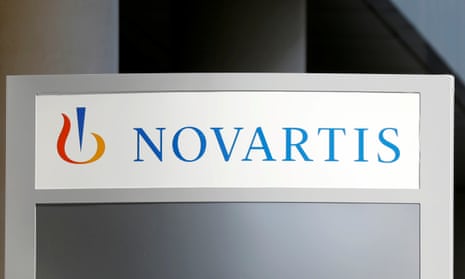Patients in England are to start receiving a “gamechanger” drug that doctors say will protect tens of thousands of lives by cutting the number of people who have a heart attack or stroke.
The treatment, inclisiran, works by boosting the liver’s ability to reduce the body’s level of “bad” cholesterol, even in those who have already tried using statins.
The National Institute for Health and Care Excellence (Nice) has approved the drug for use by the NHS in England after clinical trials showed that it was highly effective.
It is being made available immediately after Novartis, the company that makes the drug, agreed to lower the price in a deal with NHS England that will result in 300,000 patients using inclisiran in the next three years.
The drug usually costs £1,987.36 for a 284mg dose pack. The size of the discount that the NHS secured has not been disclosed, but Novartis’s decision to charge less opened the door to Nice approving inclisiran as value for money and NHS England agreeing to make it widely available.
“Inclisiran represents a potential gamechanger in preventing thousands of people from dying prematurely from heart attacks and strokes,” said Meindert Boysen, Nice’s deputy chief executive and director of its centre for health technology evaluation.
It will be offered to people who have either primary hypercholesterolaemia or mixed dyslipidaemia – which both involve dangerously high levels of low-density lipid (LDL-C) or “bad” cholesterol and create the risk of heart attack or stroke – and who have previously had a cardiovascular collapse.
Patients will receive the drug in the form of a twice-yearly injection from a nurse at their GP surgery.
Inclisiran is the first treatment in the world to tackle high cholesterol using RNA interference to help the body expel it from the bloodstream. Doctors say the drug will help those who have not been able to control their cholesterol using statins. It can be taken on its own or with statins.
Prof Kausik Ray, the director of the Imperial Centre for Cardiovascular Disease Prevention, said inclisiran would reduce the risk of someone with high cholesterol and a history of heart disease suffering a stroke or heart attack over the next 10 years from 29% to 20%. “It’s great news for patients. It will reduce their medication burden and offer convenience,” said Ray.
“Statins and inclisiran are complementary. Statins make more cholesterol receptors and inclisiran, by stopping the production of a protein called PCSK9, makes these receptors last or survive longer,” Ray said. “The two treatments reduce LDL-C by about 75%-80% when compared to no treatment.
“Twice-a-year dosing will safely provide an average annualised reduction in population-level LDL-C of approximately 50% … [which] would reduce cardiovascular events by about 30%.”
If the 300,000 patients receive the drug as planned over the next three years it would mean that about 30,000 fewer heart attacks and strokes occur, he added.
Amanda Pritchard, NHS England’s chief executive, hailed inclisiran as a “revolutionary treatment”. She said: “Heart disease is still one of the major killer conditions so it is fantastic that we now have such an effective and convenient treatment for those living with dangerously high cholesterol levels.”
ProfSir Nilesh Samani, the medical director of the British Heart Foundation, said he expected that the drug would in future be offered to even more patients with heart problems.
“More research is needed to confirm the full extent of its benefits, but I anticipate that in the future it will also be approved to lower cholesterol for a much wider group of people to prevent them from having a heart attack or stroke in the first place,” he said.
Sajid Javid, the health and social care secretary, said the “life-saving new treatment … is a huge step forward in tackling the scourge of heart disease, which tragically kills thousands every year.”
